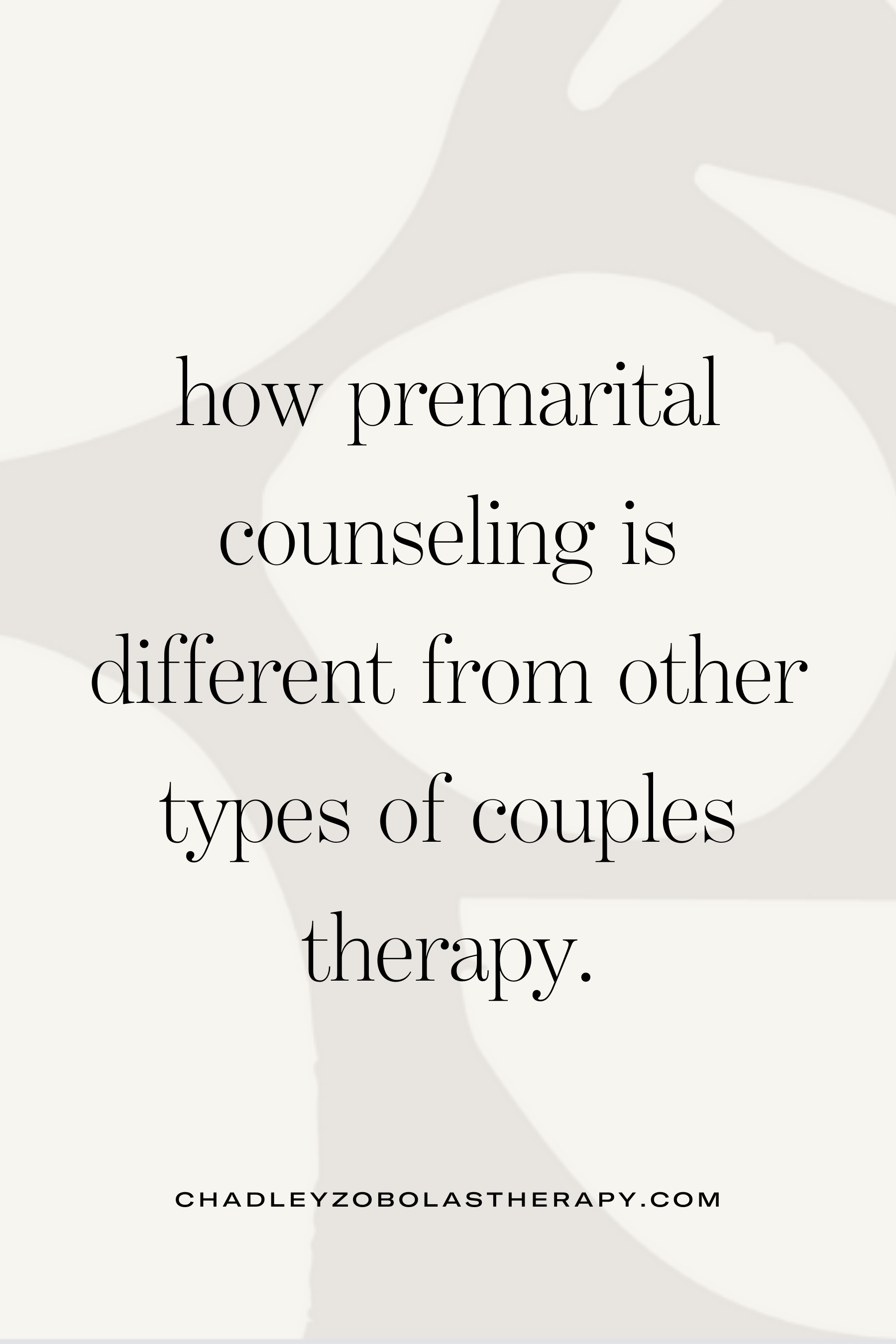How Premarital Counseling is Different from Other Types of Couples Counseling
From a couples counselor in Denver, Colorado.
If you’re considering going to therapy with your partner before getting married (or while you’re in the early stages of your relationship, whether marriage is on the horizon or not), you may be wondering if you should look for specific premarital counseling or general couples counseling. After all, you want to find the right fit!
The easy part is that many therapists who offer couples and marriage therapy also offer premarital counseling. But there are some major differences between premarital counseling and other types of couples’ counseling! These are a few things to know about premarital counseling specifically, as well as what you can ask a potential therapist about before scheduling your first appointment.
1) Premarital Counseling is Preventative.
Couples typically start premarital counseling because of a life transition (getting engaged or considering marriage) rather than because of a concern in their relationship. And so it makes sense that premarital counseling is more preventative in nature! The goal for premarital counseling is to lay the groundwork for a healthy marriage, rather than try to resolve issues.
To be fair, couples never need to be dealing with a “problem” to go to couples counseling of any kind! Couples’ therapy can be a beneficial, growth-filled experience at any stage of a relationship. But the reality is that many couples initially seek therapy because they’re needing additional support. Premarital counseling is the one type of couples’ counseling in which the majority of therapy seekers are doing so preventatively.
2) Premarital counselors may use specific models, methods, or structures.
While every therapist is a little different, it’s common for premarital therapy to include a little more structure than typical couples’ therapy. Many therapists go through a specific model or structure with their premarital couples to help them address several key areas of their lives and relationship. While some couples may not want to go to therapy that feels so structured, others appreciate the structure and sense of knowing what they can expect and ability to focus on key areas.
3) Premarital counseling may include looking at all areas of your life together.
While other types of couples counseling often focus on specific concerns and the couple’s goals, premarital counseling often takes a big, sweeping look at all the areas of your life together. Basically anything relevant to preparing for marriage! This could include areas of life such as views on parenting and/or whether you want children, politics, religious beliefs, shared values, finances, sex and intimacy, roles and expectations of each other, how to split up the household workload, boundaries, issues with each other’s families, conflict dynamics and resolution, communication skills, careers, and really anything else you can think of! Because all of these areas are relevant to couples getting married, none of them are off the table in premarital counseling.
4) Premarital counseling tends to be more future focused than other types of couples’ counseling.
While the past and present certainly do come up in premarital counseling, it tends to emphasize future planning more than other types of couples’ counseling. Again, premarital is all about laying a healthy foundation for marriage! Past resentments and current issues are addressed mostly as to how they affect the relationship moving forward. Some therapists may feel comfortable supporting a couple through premarital counseling and then continuing to see them to address other couples-related issues.
I hope this helped to answer questions around the basics of premarital counseling! If you’re interested in premarital or general couples counseling in the Denver metro area, or throughout Colorado online, our team of therapists at CZ Therapy Group is here to support you. Learn more about our work with premarital couples or reach out to connect with a couples counselor on our team!

